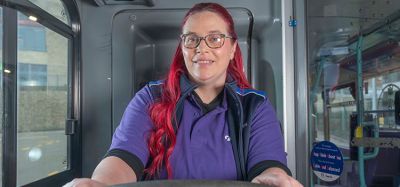Transport for the South East calls for better connectivity region-wide
- Like
- Digg
- Del
- Tumblr
- VKontakte
- Buffer
- Love This
- Odnoklassniki
- Meneame
- Blogger
- Amazon
- Yahoo Mail
- Gmail
- AOL
- Newsvine
- HackerNews
- Evernote
- MySpace
- Mail.ru
- Viadeo
- Line
- Comments
- Yummly
- SMS
- Viber
- Telegram
- Subscribe
- Skype
- Facebook Messenger
- Kakao
- LiveJournal
- Yammer
- Edgar
- Fintel
- Mix
- Instapaper
- Copy Link
Posted: 1 December 2023 | Intelligent Transport | No comments yet
Data analysis has shown that the south east of England is plagued by above-average car ownership and limited rural public transport options, leading to TfSE to call for improved transport connectivity in the region.


Transport for the South East (TfSE), the sub-national transport body for the south east of England, has released its first State of the Region report, which shows where the region currently is on important measures of economy, society and the environment.
Following data analysis, TfSE is calling for better connectivity in the region to address three significant findings.
A significant number of households own three or more cars*
The UK average of the percentage of households with three or more cars is 7.5%. The Isle of Wight, Slough, Medway, East Sussex, West Sussex and Kent are all above the UK average. One in 10 households in Hampshire, Surrey, Bracknell Forest, Windsor and Maidenhead, West Berkshire and Wokingham all have three or more cars.
Car ownership is expensive but, in some parts of the region, it is a necessity rather than a luxury. Shiftwork, unaffordable fares or reduced services often result in the car being chosen as the preferred choice of travel. Better public transport provision in the region would result in people being less reliant on their cars, whilst also creating personal and environmental benefits.
Greater carbon emissions in rural areas compared to urban areas**
The more rural local authorities in the region are the largest generators of carbon emissions. Trip distances in rural areas are longer than in urban areas because jobs/ services and daily lives are further apart. Public transport options are far fewer in rural areas than they are in urban areas, so the opportunities to choose not to drive are often limited.
Rural parts of East Sussex, West Sussex, Hampshire and Berkshire have the highest Transport Emissions Per Capita. Connecting and improving public transport services in rural communities would help to reduce the higher levels of carbon emissions to be found in some rural parts of the region.
A downturn in new business start-ups since mid-2022***
Business start-ups are a measure of the potential economic health of a region, particularly as a gauge of how attractive it is for new businesses to locate there to start-up. Having good access to a pool of skilled workers through good transport links is a consideration, as will access to markets/ customers. A region’s connectivity is part of its attractiveness to new business start-ups.
The south east has seen a reasonably steady number of business start-ups between 2017 and 2021, hovering around 50,000 new businesses a year starting up in the region. However, there has been a significant downturn during 2022, possibly fuelled by the cost-of-living crisis. Whatever the reason, improving connectivity in the region must remain a priority to encourage new business start-ups, which contribute significantly to the country’s economy.
Councillor Keith Glazier, Chair of Transport for the South East, said: “Better connectivity across the region with a focus on more frequent and reliable public transport is clearly the key to addressing these findings. We have set out in our evidence-based Transport Strategy and Strategic Investment Plan how this can be achieved with much-needed short and long-term interventions. It is vital that these proposals become reality to ensure that the south east remains the second most productive region in the country outside of London.”
Data
- *Office for National Statistics
- **UK Government
- ***Office for National Statistics
Related topics
Accessibility, Mobility Services, Modal shift, Passenger Experience, Public Transport, Transport Governance & Policy
Related countries
United Kingdom
Related organisations
Transport for the South East (TfSE)
Related people
Keith Glazier








